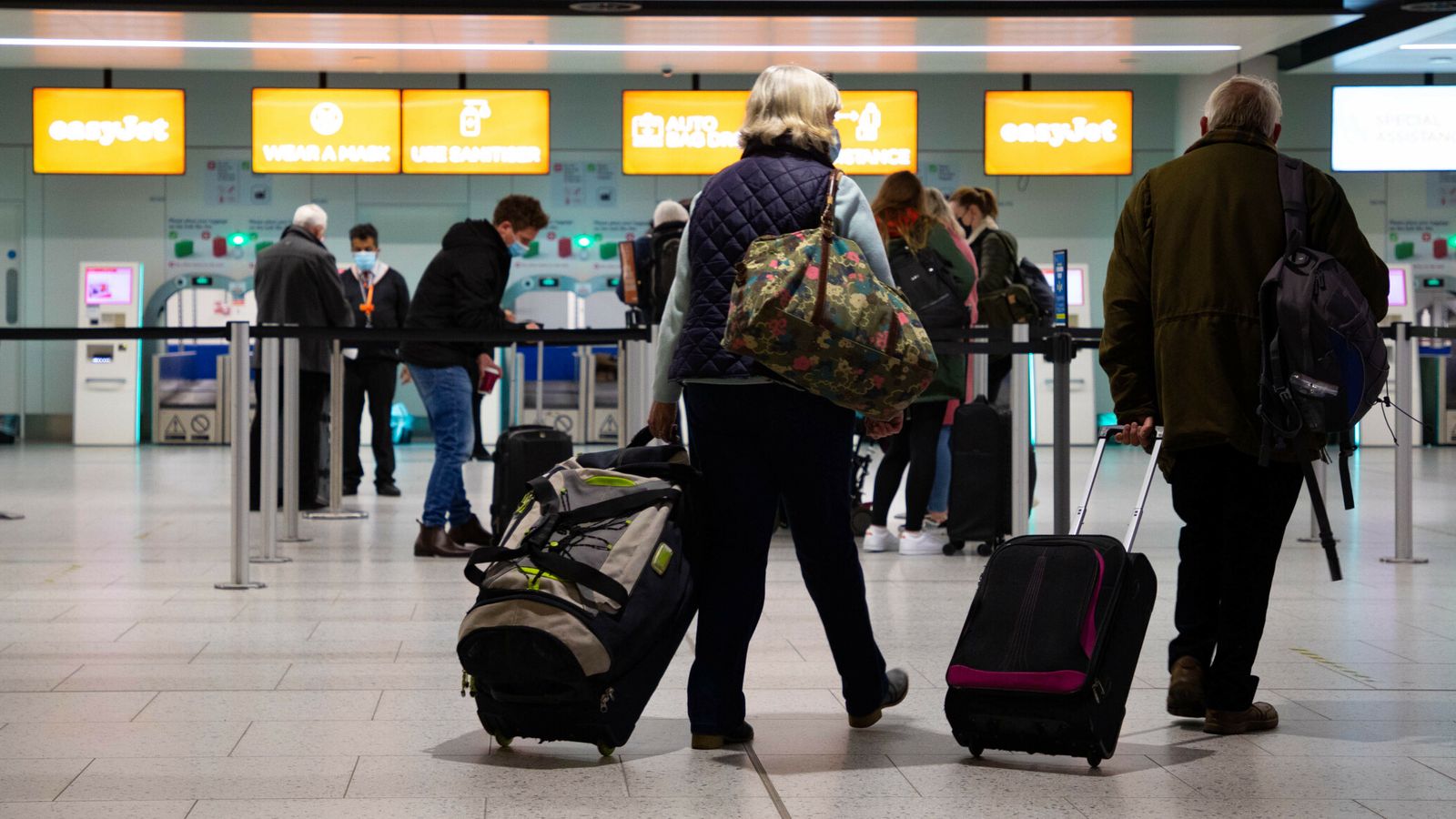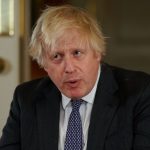The health secretary has defended the government’s messaging on international travel, insisting the advice on holidays has been “crystal clear”.
Since the ban on foreign holidays was lifted on Monday as part of the easing of COVID-19 restrictions, people have been able to enjoy quarantine-free travel to a dozen destinations on the green list.
Live COVID updates from the UK and around the world
Please use Chrome browser for a more accessible video player
But there has been confusion over countries on the amber list, destinations which require an isolation period at home after returning.
When the announcement of the traffic light system was made earlier this month, Transport Secretary Grant Shapps stressed people should not travel to amber list countries on holiday.
But thousands of people have reportedly travelled to destinations on the amber list since Monday, such as France, Greece, Spain and the US.
More than 150 flights are reported to have left on Monday.
And there have been a series of contradictory comments from ministers that critics say have fuelled confusion.
Environment Secretary George Eustice suggested people could travel to amber list countries to visit family and friends.
Later that same day, health minister Lord Bethell said travelling was “dangerous” and people should not be going abroad full stop.
Welsh Secretary Simon Hart then told Times Radio that people should use their “common sense” when it comes to travelling to amber list countries.
He said people should only go to amber list countries “if it is essential” and that “some people might think a holiday is essential”.
Boris Johnson has sought to end the confusion by stating on multiple occasions this week that people should not be travelling to amber list nations on holiday.
Please use Chrome browser for a more accessible video player
The prime minister said the position was “very clear” and people should only go to a country on the amber list “for some extreme circumstance, such as the serious illness of a family member”.
“You should not be going to an amber list country on holiday,” he told the Commons.
The health secretary reiterated this when he addressed a Downing Street news conference on Wednesday,
He said visiting a sick relative or going to the funeral of someone close to you were two legitimate reasons for going to an amber list country.
Mr Hancock said: “We have been absolutely crystal clear that you should not go to an amber or red list country on holiday, you should only go in exceptional circumstances.
“I think we have been really clear throughout this pandemic that there are some things we have banned in law but there are some things that we do not recommend, but you don’t necessarily have to ban everything.
“As a government minister, if you don’t advise it and you think it isn’t the right thing to do, you don’t necessarily ban it – there are many examples of that.
“What we do know is that the public have been brilliant at exercising the personal responsibility that we are seeking.”
Follow the Daily podcast on Apple Podcasts, Google Podcasts, Spotify, Spreaker
Mr Hancock said as many as 30,000 door-to-door inspections had been carried out in the last week to check that people were following the quarantine rules.
The health secretary added that if people wanted a holiday they should go to a green list destination, or follow his example and have a break in the UK.
His comments come as it was revealed that Britons are a step closer to being able to go on holiday in Europe.
EU ambassadors have agreed a plan to ease restrictions on foreign visitors, with tourists who have had two doses of a coronavirus vaccine being allowed to visit the bloc.
Please use Chrome browser for a more accessible video player
Asked why fully vaccinated Britons could not go on holiday to EU countries not on the green list, Mr Hancock’s briefing accomplice Professor Jonathan Van-Tam pointed out some parts of Europe had “quite high levels of disease activity” compared to the UK.
He compared the risk of holidaying in nations with higher levels of coronavirus even after vaccination to jumping into different levels of shark-infested ponds.
Prof Van-Tam said: “When you go abroad, jumping into a pond with one shark in it or jumping into a pond with 100 sharks in it, it changes the likelihood that you’re going to get bitten.”






















